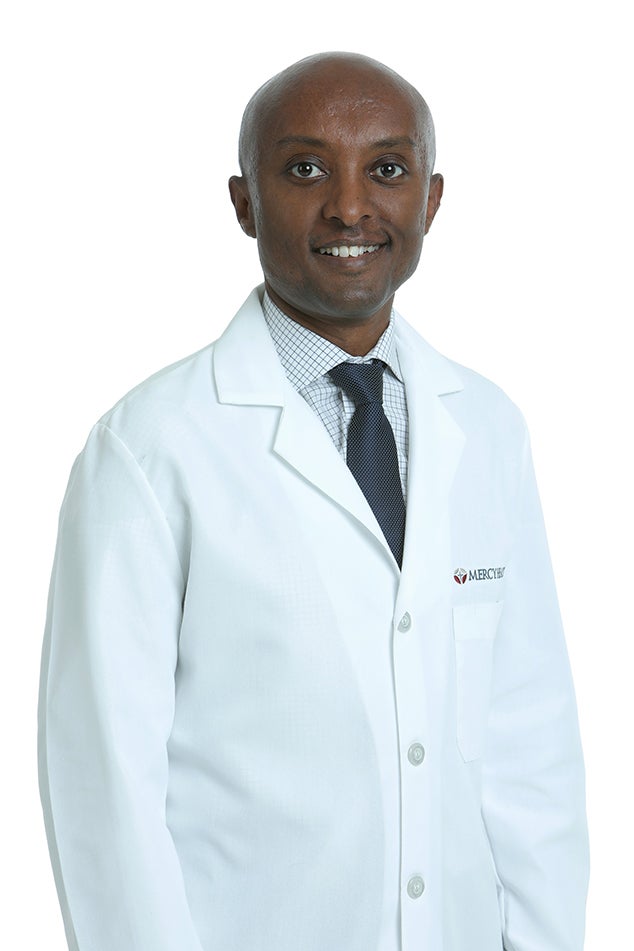Why People Continue to Delay Cardiovascular Care
February 23, 2021
By: Mary Ann Boyer
Categories: Cardiovascular Health
Morethan one-third of adults in the U.S. have skipped or delayed necessary medical care due to fear of COVID-19 exposure and limited care access during the pandemic, according to research funded by Robert Wood Johnson Foundation.
So why have people delayed or skipped necessary care? It’s primarily a question of perceived risk, says Mercy Health Physician Partners Interventional Cardiologist Abiy Nigatu, MD.
Perceived Risk
“Through clinical psychology, we know that people are affected by information that they feel is significant rather than by what may actually be significant,” said Dr. Nigatu. He recognizes that with an abundance of misinformation that has been presented in the news and on social media, it is understandable that the average, non-clinical person might not correctly weigh the risk of seeking care.
Dr. Nigatu acknowledges that the health care profession may also have contributed to this phenomenon.
“During the first weeks and months of the pandemic, the health care industry was not aware of how much risk there was for the public,” said Dr. Nigatu. “We were unsure of how much risk there was in even leaving our homes. We were learning as we went, so that may have affected how people perceived the risk of seeking care. People’s fear was well-founded.”
Another reason that patients may have postponed care — a reason that is not new — may have to do with the fact that many people do not have health insurance.
“Health care has been postponed in underprivileged communities for a long time. The pandemic has probably exposed that fact for the general public.”
Circumstances That Reduce Risk
At this time, Dr. Nigatu encourages people to focus on their general health and not to neglect it because there are multiple layers of protection in place throughout our health care institutions that practice CDC (Centers for Disease Control and Prevention) protocols.
“After a year, we now know how the virus is transmitted. We know that when people wear masks and maintain distance, they are using effective protective measures that minimize exposure,” said Dr. Nigatu.
He cites many protocols in place to protect colleagues and patients in hospitals, such as testing for COVID before outpatient procedures as well as rapid testing in the Emergency Department; screening of all people who enter a facility; improved air handlers that increase ventilation; isolation of COVID patients, and others.
“In this day and age, the likelihood of acquiring COVID-19 in a hospital is significantly low. Currently, we are back to our full out-patient and in-patient procedure schedules,” he added.
COVID’s Risk to Your Cardiovascular System
The first indications that COVID affected the cardiovascular system came in the spring of 2020. An early European study revealed that about one-third of hospitalized COVID patients had some form of inflammation of the heart muscle — known as myocarditis — even though a majority of those patients weren’t presenting with clinically-relevant heart issues. More recent evaluations showed a reduction in the incidence of true myocarditis to be about 5% of COVID patients, which is still significant.
“Myocarditis along with lung injuries have worsened the outcomes for COVID patients,” said Dr. Nigatu. “We have seen an increase in heart rhythm abnormalities and congestive heart failure — complications from inflammation.”
But even when they survived, many COVID-19 patients continued to have heart issues and breathing problems — the so-called long haulers. Dr. Nigatu is concerned that we may not fully know the long-term effects of heart inflammation in COVID patients.
“We are still in the process of learning more about the long haulers. Studies are still being done to determine what effect COVID has on the heart, even in patients without heart symptoms. In our clinics now, we are seeing more long-term mildly reduced heart function and rhythm abnormalities.”
The COVID-19 Vaccine, from a Cardiologist’s Perspective
Dr. Nigatu recognizes that getting the vaccine is a personal choice. What he asks is that patients look at the data from the millions of people who have gotten the vaccine.
“I personally have taken both doses of the vaccine, and the reason why I have done so is because I believe the risk is not even close to the benefit from the vaccine. When my cardiac patients ask if they should get the vaccine, I say I think they should give it a shot.”
If you have questions about the COVID-19 vaccine, please visit www.mercyhealth/vaccine.
If you have questions about your health, please reach out to primary care providers or specialists.



